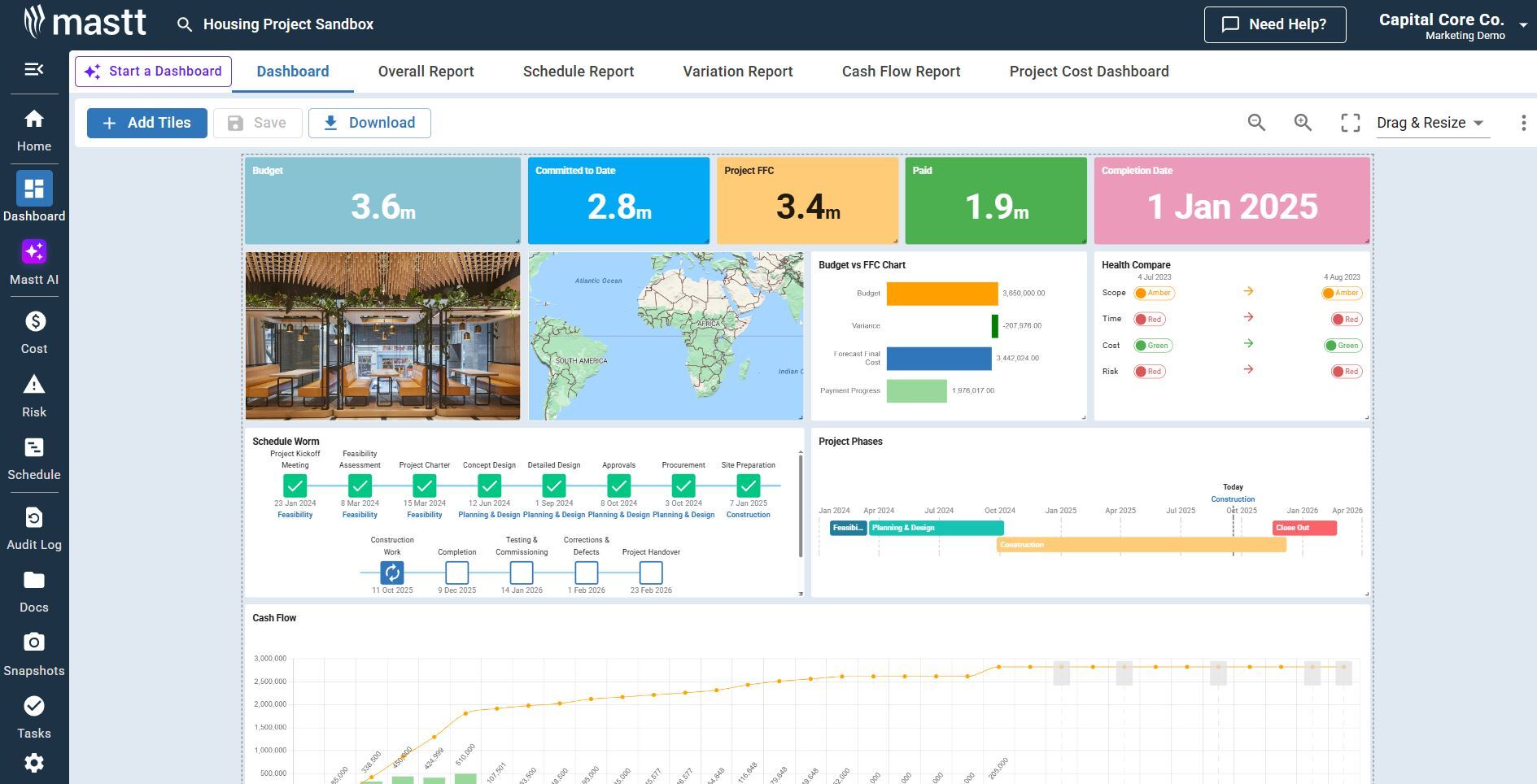Find the top construction project management software for small businesses in 2026. Explore features that simplify tasks, control budgets, and improve efficiency.

For small construction businesses, the right project management software can mean the difference between delays and success. These platforms streamline tasks, improve collaboration, and keep projects profitable. Here are the leading choices this year:
Construction project management software for small businesses is designed to help smaller teams manage the full lifecycle of their projects. It brings scheduling, budgeting, communication, and document management into one simple platform.
These project management tools prioritize ease of use, affordability, and scalability so small businesses can work efficiently with limited staff and resources. By streamlining construction project management, the software enables professional-grade results without the need for extensive training or complex systems.

Construction management software for a small construction business works by connecting schedules, budgets, and tasks in one system. Every update feeds into a central database, so related areas adjust automatically.
The process works through these core functions:
This platform connects people, processes, and data. Consolidating tasks, documents, and workflows enables construction managers and teams to deliver projects more efficiently.
Adopting project management tools helps small construction businesses simplify tasks, centralize information, and improve control over projects. The most important benefits for small construction companies include:
These benefits also compound over time. Small construction companies that adopt project management software build stronger processes, which directly support long-term stability and competitiveness.
Small construction businesses need software that combines straightforward design with features powerful enough to handle complex projects. Features must be easy to use, practical for small teams, and flexible enough to grow with the company.
Look also for features like:
As AI in construction becomes more advanced, small businesses gain access to capabilities that were once limited to big companies. Predictive analytics, smart assistants, and automated data entry are making project management faster, easier, and more accurate.
Before investing in construction management software, small businesses should define their requirements. The right platform should match project size, team capacity, and long-term goals.
When comparing different options, follow these steps to find the best fit:
Step 1: Identify Your Core Needs
List the problems you want the software to solve. A residential builder may need simple scheduling and budgeting, while a general contractor managing multiple subcontractors requires stronger cost control and document management.
Step 2: Evaluate Ease of Use
Small businesses can’t waste time on steep learning curves. Test whether the platform feels intuitive. If creating a task or updating a schedule takes too many clicks, it’s not the right fit.
Step 3: Match Features to Your Projects
Avoid paying for features you don’t need. A small remodeling company may only need task tracking and client communication, while growing construction companies benefit from advanced workflows, resource management, and reporting.
Step 4: Test with Your Team
Use free trials to involve both field crews and office staff. Have them upload files, assign tasks, and check dashboards. If everyone can use it comfortably after a short walkthrough, it’s a good fit.
Step 5: Review Integration Options
Check if the software connects with tools you already use, such as accounting platforms, bid management systems, or payroll. Integrations reduce duplicate entry and keep all project data consistent.
Step 6: Compare Free and Paid Plans
Free versions may work for one-off jobs or very small teams. For recurring projects or multi-stakeholder workflows, paid plans usually unlock essential features like forecasting, AI assistance, and advanced reporting.
Step 7: Plan for Growth
Pick a platform that works today but can scale as your business expands. Look for construction software that adds users, projects, and AI-driven insights without forcing you to switch systems later.
Compare how each platform aligns with your workflows and ease of use. Then assess team adoption while weighing cost and scalability against extra features you may not need. This ensures you invest in construction project management software that delivers real value for your small business without overspending.
To stay competitive, small construction companies must operate with greater precision and efficiency. The right project management software delivers visibility, control, and efficiency across every project. With stronger oversight of budgets, tasks, and communication, small construction businesses can protect margins and exceed client expectations.
Recommended as the
Top Construction Project Management Software for Small Business in 2026
Web-based, Cloud Integration
4.7/5 (Capterra)
Infrastructure & Public Works, Buildings & Real Estate, Industrial & Energy

Web-based, iOS, Android
4.5/5 (Capterra)
Construction, Remodeling, Specialty Contracting.

Web-based, iOS, Android
4.7/5 (Capterra)
Custom Home Building, Remodeling, Construction Management.

Web-based, iOS, Android
4.6/5 (Capterra)
Construction, Engineering, Architecture.

Web-based, iOS, Android
4.5/5 (Capterra)
Marketing, IT, Construction, Education.

Web-based, iOS, Android
4.5/5 (Capterra)
Construction, General Contractors, Trade Contractors.

Web-based, iOS, Android
4.2/5 (Capterra)
Construction, General Contractors, Commercial Construction Firms.

Web-based, iOS, Android
4.5/5 (Capterra)
Construction, Engineering, and Real Estate Development.